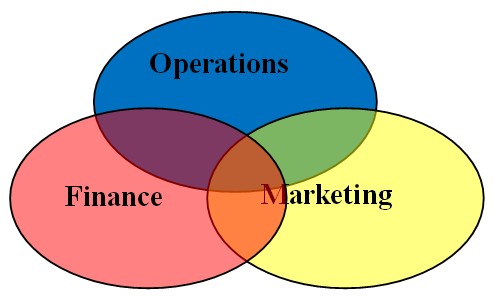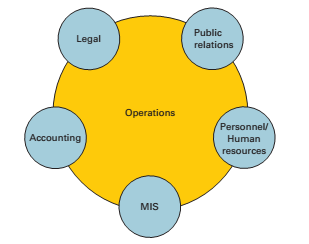Results
In the case of Etihad Airways, the operational links between the different subsections of the organization depict the performance of the airline. Within just 10 years, Etihad has risen to the same level as other airlines that have been in operation for over a century. Operations management in the air travel industry is a complex process (Slack, Chambers, & Johnston, 2010). It entails forecasting, capacity planning, scheduling, managing inventories, quality assurance, locating facilities, employee motivation, and training among many others (Stevenson, 2005). However, Etihad Airways has endeavored to ensure that it takes care of every detail with utmost precision.
In its short history, Etihad has scooped ‘The World’s Leading Airline’ award for four consecutive years (Center for Asia Pacific Aviation, 2013). It first won the award after operating for only five years and ever since, it has stayed at the top spot every year. This implies that the airline offers quality services to its passengers. In the line of expansion, Etihad Airways has grown its passenger base from 340,000 in 2004 to 10.29 million in 2012 (Center for Asia Pacific Aviation, 2013). The exponential growth of customers makes Etihad to be one of the fastest growing airlines in the history of aviation globally.
It currently serves 86 passenger and cargo destinations on its own with a fleet of 159 aircraft (Etihad Airways, 2013). It runs an ambitious expansion program, which has seen it acquire 2.987 % stake in Air Lingus the Irish national carrier, 29.21 % stake in Air Berlin Germany’s second largest airline, 10.5% in Virgin Australia, and is soon increasing the stake to 19.9 % and 40 % stake in Air Seychelles (Center for Asia Pacific Aviation, 2013). It also runs a capacity enhancement program that will give it the capacity to handle 40 million passengers by the year 2030.
Etihad Airways has divided its global business operations into six geographical regions, which are each presided over by a regional vice president (Etihad Airways, 2013). These include the Americas, Europe, Africa and the Middle East, the UAE and Oman, Asia Pacific North and the Indian Subcontinent and Asia Pacific South and Australasia (Center for Asia Pacific Aviation, 2013). Under these heads are sales teams in every market that Etihad operates. Besides such a team, Etihad also cooperates with its affiliates, which include Etihad Holidays, Hala Abu Dhabi, and Etihad Cargo among others to ensure that it delivers premium services to its customers.
In other arrangements, Etihad also runs facilities that enable it to maintain contact with its customers at levels, and thus acquire a good public image. Such facilities include Global Contact Centers, Etihad, and Global Accounts that dedicated global sales teams operate and offer services in 15 different languages to accommodate all. Etihad Airways is thus an airline that has gone to great lengths in ensuring that its services surpass the expectations of clients.
Discussion
Efficient management of operations has the potential to place an organization in any industry at the top in terms of performance. Essentially, if an organization adheres to its vision and mission, it must ensure that all the operations perform optimally. According to Stevenson (2005), the basic function of any organization, department, or individual process is to transform a raw material, industrial product, or resource into a valuable output that meets demands of clients. It is important to note that every activity that occurs in an organization is part of a process. Technically, several interlinked processes form an operation.
Within the setting of Etihad Airways, many operations take place as individuals and groups work towards achieving the goals of the organization. This makes process management an important aspect of operation management in Etihad Airways because through it, the organization has managed to increase the number of its clients exponentially. Stevenson (2005) elaborates on the variables that interact within the setting of an organization to deliver the desired results. Besides the operations department, two other key departments in Etihad are the finance department and the marketing department.
The figure below outlines the relationships.

In the figure above, the three functional areas need to cooperate very closely for the success of an organization’s operations. This implies that the finance department overlaps with the operation department in some areas such as budgeting and analysis of investment proposals, and thus they have to share information and cooperate. This makes operation management central in any organization (Slack, Chambers, & Johnston, 2010). For it to deliver its core functions effectively, it further interacts with other functional areas. This relationship is shown in the figure below.

The relationship between operations and the legal department is necessary, especially when dealing with issues such as signing of contracts. Similarly, all the other departments play particular functions that aid operation management. For instance, the Management Information Systems (MIS) department handles the flow of information within and out of the organization. Hence, it suffices to say that all the sections and subsections of an organization have direct links with the operation management department. The links must have some relationships, which enhance operation management for an organization to run effectively.
The achievements credited to Etihad Airways are explicit indicators of its commitment to the business activities that enhance its efficiency and effectiveness. Operation management is at the heart of all these activities. The sub-division of the Airlines’ operations into geographical regions aims at ensuring that the operations are manageable. Placing of regional operations under regional heads streamlines coordination of all the operations. The establishment of partnerships with other airlines, service companies and its affiliates all add to this mix of channels through which Etihad Airways seeks to reach its customers. These are its value additions or transformation endeavors, which give meaning to what they deliver to clients.
The process of operation management in the aviation industry is complex, but Etihad Airways has managed to arrange many operations well and coordinate them with such precision, which has made it emerge as the best airline every year. The airline has diverse employees who come from 126 different nationalities (Etihad Airways, 2013). These employees are able to attend to clients in 15 different languages. Besides this, Etihad is running expansion programs, which indicate that its departments are coordinating well, and sharing information in a manner that allows it to prepare adequately for the future. For instance, by 2009, Etihad was capable of handling 12 million passengers, yet it only carried 10 million passengers up to 2012.
Etihad values its employees just as it values its clients. The value that Etihad has for its employees is evident as facilities of employees that claim a reasonable portion of Etihad’s resources. The modern facilities that Etihad is putting up also serve to improve the working conditions of its employees. This also shows that Etihad has well-coordinated human resource management, which supports motivation and welfare of employees. Therefore, examination of the results of the operation management in Etihad Airways shows that it manages its operations exceptionally well. Exceptional management of operations has made Etihad Airways to earn prestigious awards in the airline industry.
References
Center for Asia Pacific Aviation (2013). Facts and Figures. Web.
Etihad Airways (2013). The Etihad Experience. Web.
Slack, N., Chambers, S., & Johnston, R. (2010). Operation management (6th ed.). Edinburgh: Pearson Education Limited.
Stevenson, W. J. (2005). Operation management (8th ed.). Boston: McGraw-Hill/Irwin.